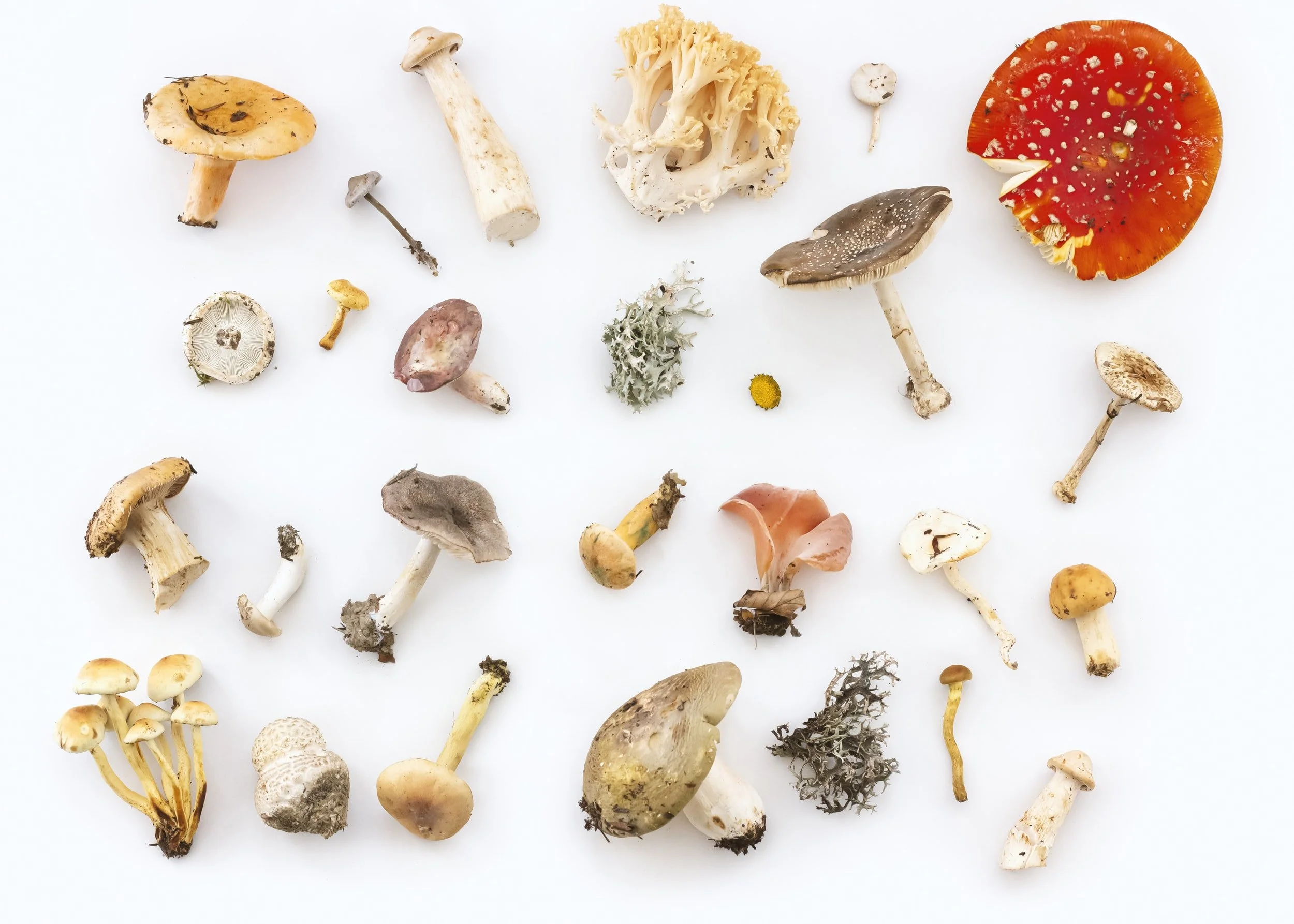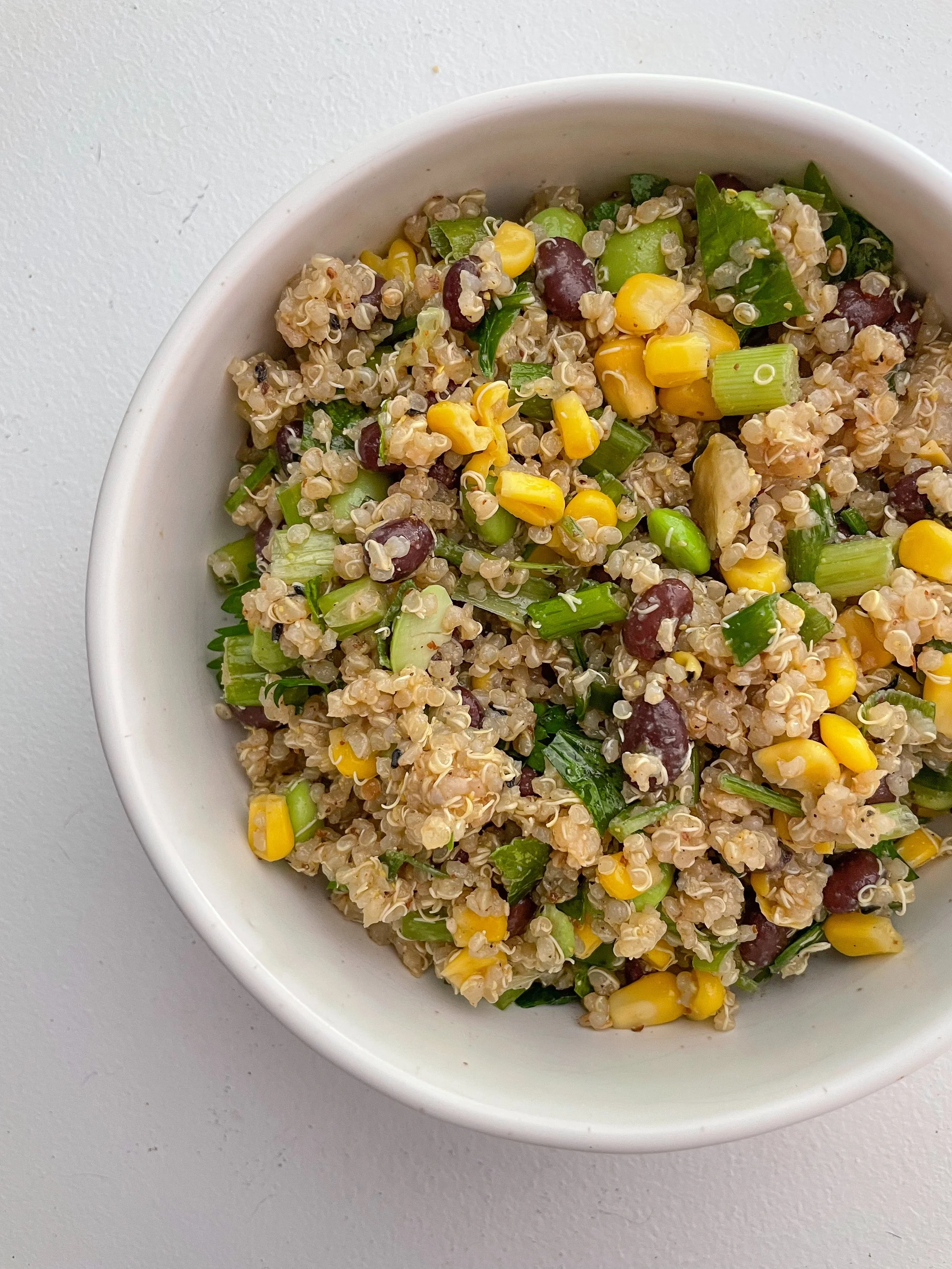The Medicinal Mushroom Guide
I get a lot of instagram messages about medicinal mushrooms so I thought it was time to do a little blog post. I use these in my nutrition practice with clients a lot. They’re easy to add to your daily routine and have big impacts. I’ll discuss:
1- What does each mushroom do?
2- Which brands do I love?
But first,
The basics
The mushroom part of a fungus is also called the fruiting body and the mycelium is the root structure that holds it together. As Rainbo mushroom quotes so perfectly, “The mycelium roots often last for many years, while the mushroom fruiting body will emerge from the hidden mycelium when the time is right to reproduce then it quickly is decomposed.”
Medicinal mushrooms (a fungi) are amazing because they include:
beta-glucans • polysaccharides • triterpenoids • phenols • steroids • glycoprotein derivatives • nucleoside derivatives • enzymes • alkaloids
Medicinal mushrooms have prebiotics therefore they have a beneficial impact on the gut. They support your immune system, lower inflammation, anti-microbial, help with blood sugar and even contain anti tumour activity.
Brands often include either fruiting body (mushroom) or mycelium (starch). You’ll have more beta glucans and beneficial properties when you choose the fruiting body. When buying mycelium locally it’s often grown on grains so you get that added filler in your product.
Grown on grain: 1.5% Beta-glucans
Fruiting body: upwards of 35% Beta-glucans
Data courtesy of Nammex.
Grown on grain/mycelium is often referred to as full spectrum and this has lower beta-glucans. Fruiting body is the mushroom
When organic medicinal mushrooms come from China, it’s actually a good thing because it’s not grown on grain (from my knowledge, as this is where mushroom have been growing for thousands of years).
You really do have to look at the ingredients because our labelling standards aren’t great in Canada. It’s very important to ask questions and get to know your local brands as fraud unfortunately occurs, check out this study where most the reishi was not actually reishi.
I filmed an instragram video last year attempting to explain the differences: here
1: The Medicinal Mushrooms
Chaga
longevity, DNA protection and anti-aging
blood sugar regulation
immune support, antioxidant
adaptogen
Lion’s Mane
brain health, cognitive enhancer and neurogenesis (nootropic)
gut health
cardiovascular
immune strength
reduce mild symptoms of anxiety and depression
Cordyceps
energy mushroom (increases ATP, edurance)
lung support, bronchodilator (seasonal allergies or asthma)
cardiovascular
adaptogen
libido and fertility
cognition/anti-fatigue
Reishi
reduce stress and supports a good sleep
liver support and radiation protection
anti-bacterial, anti-viral, anti-fungal
adaptogen
immune modulating
Turkey Tail
immunity
gut health
cancer fighter, antioxidant
anti-viral (HIV)
There are other mushrooms, but this gives you the low down on the majority used today.
2: Brands I love
It’s no surprise I am a huge fan of fruiting body (team Chilton, sorry Paul Stamets)
Tincture: Canadian Pine Pollen (code jordan15) makes mushroom tinctures now! I love adding this brand of tincture to my matcha or coffee, you can’t even taste it! The benefit of a tincture is a faster absorption rate than powders.
Powder or capsule: Eversio for capsules (code jordan15) or Real Mushrooms for powder (US friends). These two companies are using only fruiting body and are testing products for safety and quality. They both have organic certification and the product is grown in China - this is a good thing. It’s a red flag that a company is using starch is it’s grown in North America.
https://www.eversiowellness.com/discount/JORDAN15
I personally avoid Purica and Host Defense as they contain mycelium.
Want more personalized nutrition advice or maybe even testing? Head to services to learn how I can help you!
other blog posts that may interest you:
Herbs I love (check with your practitioner when adding during pregnancy, I did use some)
My matcha recipe and the benefits of consuming































